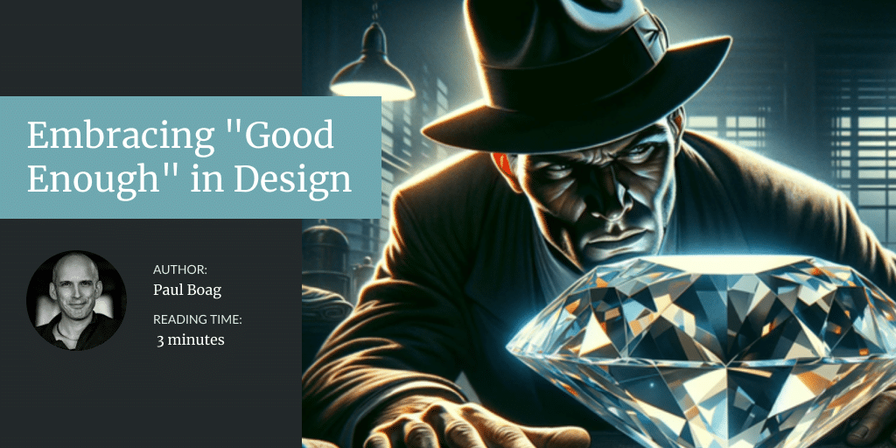Embracing “Good Enough” in Design: A Practical Approach

my notes ( ? )
I often encounter a common mistake among less experienced designers: the quest for perfection. It’s a natural inclination to want to polish every aspect of your work to a shimmering ideal. However, this pursuit of perfection can be more of a hindrance than a help.
Perfection: A Double-Edged Sword
The truth is that perfection is an impossible target. Even striving for the “best possible” outcome isn’t always the most practical approach. This relentless pursuit for better often leads to procrastination, over-engineering, and unnecessary spending. As designers, we must recognize the thin line between craftsmanship and the pitfalls of perfectionism.
The “Good Enough” Philosophy
Instead of chasing an unattainable ideal, we should aim for “good enough.” Now, ‘good enough’ doesn’t mean mediocre; it means creating work that effectively meets the user’s needs and achieves business goals. It’s about being efficient and avoiding wastefulness. It’s a balanced approach that prioritizes functionality and purpose over elusive perfection.
Flexibility Over Perfectionism
The search for perfection can also make you rigid and inflexible, often refusing to compromise even when necessary. This inflexibility can be a significant barrier in design, where adaptation and evolution are key.
Completion: The Unreachable Milestone
Perfectionism often stops designers from ever saying, “I am done.” This can lead to endless cycles of revisions and tweaks, delaying the entire project and sometimes compromising the timely delivery of a well-rounded product.
Moving Forward: The Next Steps
Furthermore, this obsession with perfection can prevent moving on to crucial next steps, like testing and gathering feedback. Remember, a design is a living, breathing entity that grows and improves over time. Testing what you have developed is vital to understanding its effectiveness and areas for improvement.
Embrace “Good Enough”
In conclusion, as designers, we should embrace the concept of “good enough.” It’s a realistic, efficient approach that aligns with the fast-paced nature of our field. It enables us to be more productive, adaptable, and ultimately more successful in meeting our objectives. Remember, in the design world, sometimes good enough is not just okay; it’s precisely what’s needed.
Read the Full Post
The above notes were curated from the full post boagworld.com/emails/embracing-good-enough-in-design-a-practical-approach.Related reading
More Stuff I Like
More Stuff tagged design process